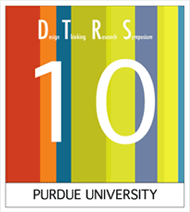Description
The design community has discussed issues of ethics and values for decades, but less attention has been paid to the question of how an ethical sensibility might be developed or taken on by design students. In this analysis, we explore how normative concerns emerge through the process of design reviews—where a developing designer’s normative infrastructure is engaged with the artifact they are designing. We focused on the normative concerns that were foregrounded by two undergraduate and two graduate industrial design students across a series of five design reviews, addressing the possible relationship between the emergence of normative concerns and the inscription of norms in the final designed artifact. We used several critical qualitative techniques, including sequence analysis and meaning reconstruction to locate areas where normative concerns were addressed. Normative concerns only arose in explicit form in the earliest review sessions on the graduate level, if they were going to arise at all, and end-user research appeared to be the primary mechanism for introducing norms into the design process. Neither instructor actively engaged or foregrounded the normative infrastructure of the design students, and all of the normative concerns discussed in the four cases were brought to the conversation by students. Implications for including awareness of normative concerns as part of a student’s developing design character are considered as part of a systemic approach to ethics and values in design education.
Keywords
Critical theory; normativity; ethics; design character; design education
Date of Verison
January 2014
DOI
10.5703/1288284315953
Recommended Citation
Gray, Colin M. and Howard, Craig D., "Externalizing Normativity in Design Reviews: Inscribing Design Values in Designed Artifacts" (2014). Design Thinking Research Symposium. 2.
https://docs.lib.purdue.edu/dtrs/2014/Multiple/2
Presentation slides
Externalizing Normativity in Design Reviews: Inscribing Design Values in Designed Artifacts
The design community has discussed issues of ethics and values for decades, but less attention has been paid to the question of how an ethical sensibility might be developed or taken on by design students. In this analysis, we explore how normative concerns emerge through the process of design reviews—where a developing designer’s normative infrastructure is engaged with the artifact they are designing. We focused on the normative concerns that were foregrounded by two undergraduate and two graduate industrial design students across a series of five design reviews, addressing the possible relationship between the emergence of normative concerns and the inscription of norms in the final designed artifact. We used several critical qualitative techniques, including sequence analysis and meaning reconstruction to locate areas where normative concerns were addressed. Normative concerns only arose in explicit form in the earliest review sessions on the graduate level, if they were going to arise at all, and end-user research appeared to be the primary mechanism for introducing norms into the design process. Neither instructor actively engaged or foregrounded the normative infrastructure of the design students, and all of the normative concerns discussed in the four cases were brought to the conversation by students. Implications for including awareness of normative concerns as part of a student’s developing design character are considered as part of a systemic approach to ethics and values in design education.


Comments
This conference presentation was developed into a book chapter that was published in “Analyzing Design Review Conversations,” edited by Robin S. Adams and Junaid A. Siddiqui (2016, Purdue University Press), which can be found here:http://www.thepress.purdue.edu/titles/analyzing-design-review-conversations.